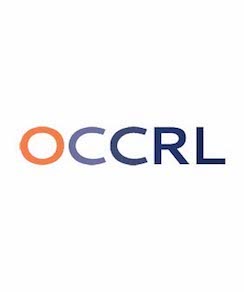While applied baccalaureate (AB) degrees are certainly not a new phenomenon, their prevalence has grown over the past two decades, often as a result of localized or state-by-state efforts driven by a small group of education or political leaders.1 Alongside what may be thought of as the “traditional” degrees of Bachelor of Arts (BA) and Bachelor of Science (BS), across the higher education landscape we now find degrees such as the Bachelor of Applied Arts (BAA), Bachelor of Applied Science (BAS), Bachelor of Applied Technology (BAT), and Bachelor of Technology (BT). This begs the question, “What’s in a name?”
In a current research study, funded by the National Science Foundation Advanced Technological Education program, we are seeking answers to this question with a focus on applied baccalaureate degrees in STEM technician education. Throughout 2012, we are getting out into the field to talk with people who are directly impacted by applied baccalaureate degree programs on a day-to-day basis – students, faculty, program administrators, industry advisors, and employers. We want to know their perspectives on the similarities and differences between applied and traditional degrees.
A recent focus group with a collection of employers in Information Technology fields yielded some interesting perspectives comparing applied and traditional degree programs. Here are some snapshots from those conversations:
Employer Reflection on Target Student Populations
“Applied baccalaureate programs are a great way for people where they’ve been displaced [or] may not have an opportunity to get a degree from a large university because they’re working or they’re doing other things. … it’s a great complement to the large state universities, in my opinion … there’s a different charter for the applied baccalaureate versus the traditional degree.”
Employer Reflection on Curriculum
“Practical is the key word. … [Applied programs] want to talk about what happens in the setting of a job, and we want to talk about what the structure of the organization is. And we want to talk about why what you’re doing is valuable to that organization and how it relates and how it supports that organization. So it really connects the dots. … that’s a key difference in the applied program. There’s not only an acknowledgement, but it embraces the fact that the goal here is for you to go out and work.”
“The BS program tends to be much more conceptual, much more theoretical… part of the role of the traditional bachelor’s degree is to also prepare you for an advanced degree: master’s, PhD, to head you down that path. The portion of it that’s focused on furthering your education takes away from the time and the ability to focus on practical application.”
Employer Reflection on Hiring Decisions
“I think a lot of companies would not recognize any difference [between an applied and traditional bachelor’s degree]. … They see that [a candidate has] a degree, and that tells them that they’ve been able to make it through 4 years of studies successfully. In all the placements I’ve done, I haven’t seen anybody questioning where the degree was from once they’ve talked to the person and they see that they do understand the concepts that they need to apply.”
“I think that the traditional degree, bachelor’s degree in computer science maybe prepares people for bigger thinking than the applied baccalaureate. Just because it forces them into classes that push them into larger thinking than just how to solve a particular type of problem. But that’s a very general statement … it depends on the individual. Where they take their career is far more important, and the attitude is far more important than whether they got a BT or a BS.”
It is interesting to us that, in these reflections, we see distinctions made between the applied and traditional degree pathways at the academic level – who is served by these programs and how the curriculum is designed with a workforce (AB) or theoretical (BS) orientation. However, that distinction does not seem to be so stark when it comes to hiring and promotion decisions.
What are your reactions to these statements? Might you offer a similar or different perspective from these employers? What’s in the “applied baccalaureate name” from your point of view?
1 Ruud & Bragg, 2011; Ruud, Collin, Debra Bragg, and Barbara Townsend. 2010. “The Applied Baccalaureate Degree: The Right Time and Place.” Community College Journal of Research and Practice, 34 (1).




Leave a comment